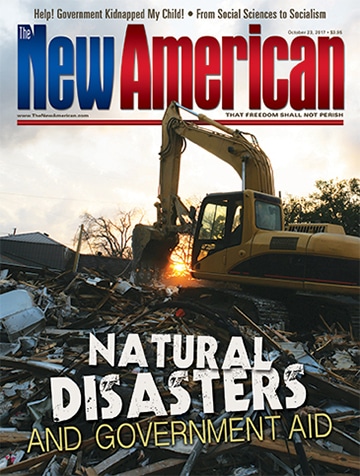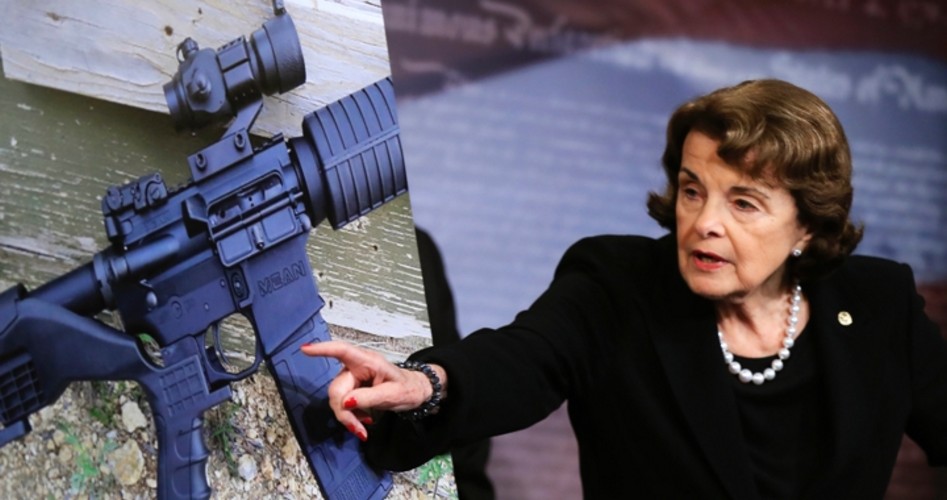Is Gun Control the Answer to Mass Shootings?
In the wake of the awful mass shooting in Las Vegas, anti-gun interests across the nation wasted no time politicizing this latest American tragedy. We have heard the arguments before, every time a terrorist or deranged gunman slaughters the innocent in a public place: Certain types of firearms have no place in civilian hands, and should be banned. America now has tens of thousands of gun laws on the books, from the local to the federal level, measures banning or severely limiting private access to hundreds of types of firearms and firearms accessories, from fully-automatic weapons to high-capacity magazines to silencers. The severity of gun laws varies significantly from state to state, ranging from jurisdictions such as Alaska, Arizona, and Vermont, where state and local gun laws are very limited, to the likes of New York, New Jersey, Illinois, and California, where large numbers of firearms are prohibited in private hands, and government permits to carry a weapon are difficult if not impossible to procure.
All but the most extreme anti-gun voices concede that, under the Second Amendment, private citizens have the right to own some firearms. But, they typically add, such rights do not extend to the freedom to carry weapons in public places, nor to own modern, high-capacity, rapid-fire weapons, and the federal government therefore should do everything it can to outlaw the private ownership of weapons deemed a threat to public safety. Are they correct?
In the first place, the wording of the Second Amendment is clear: Its purpose is to protect the right to keep and bear (i.e., own and carry) arms, in order that (among other things) a well-regulated militia may be maintained. The connection between militias and private gun ownership, once well-understood, has been obscured by legal sophistry. A militia, unlike a professional military, is a private armed force available when needed to come to the defense of the commonwealth, either on its own account or alongside professional military forces. Under the Constitution, both Congress and the states have authority over the militia, as spelled out in Article I, Section 8:
[Congress shall have power t]o provide for calling forth the Militia to execute the Laws of the Union, suppress Insurrections and repel Invasions;
To provide for organizing, arming, and disciplining, the Militia, and for governing such Part of them as may be employed in the Service of the United States, reserving to the States respectively, the Appointment of the Officers, and the Authority of training the Militia according to the discipline prescribed by Congress.
According to the legal doctrine of the day, the “unorganized militia” referred to all able-bodied men, who were presumed to own workable firearms and were eligible to be called into service as an organized or “well-regulated” militia. The existence of the unorganized militia is understood to be prior to that of the state; just as individuals have the unalienable right to self-defense, so groups of individuals have that same right. It was in this spirit that the Minutemen were organized among the American colonists and became the first armed forces to engage the British military at the outset of the Revolutionary War.
If militias are the non-professional collective fighting force, it follows that all weapons appropriate for militia use are allowable in private hands. That this is no longer the case in the United States is indicative of the degree to which Americans have permitted the federal government to infringe on constitutionally protected freedoms.
But if the ownership of firearms is protected by the Second Amendment, perhaps, in light of the dangers to the public posed by modern firearms, the Constitution should be amended to allow the prohibition of such weapons. After all, modern militaries and police forces are sufficient to carry out the protective functions once discharged by militias; perhaps private gun ownership should be restricted to weapons adequate for hunting and domestic defense — so runs the argument of “moderates” in the gun debate.
But as we have seen in recent mass shootings, the police seldom arrive on the scene until the damage has been done. And while a sniper attack such as that carried out in Las Vegas may be difficult if not impossible to defend against, many other mass shootings carried out in public venues such as schools, movie theaters, and nightclubs might have ended differently if the shooters had been confronted by armed private citizens. Just a few days before the Las Vegas shooting, an armed parishioner did manage to stop a would-be mass shooter at a church — an incident that the news media mostly ignored. Because of the nature of the news, only “successful” mass shootings get wall-to-wall coverage.
As to whether such incidents would be less likely were certain types of weapons prohibited, we need look no further than countries such as France and Norway, both of which have experienced mass shootings far worse than the United States in recent years — yet both of which have very strict gun-control laws. In a country with the population of the United States (the world’s third largest), mass shootings remain statistically very rare events.
Laws criminalizing firearms ownership, which end up denying the vast majority of decent Americans the right to defend themselves from the occasional malefactor, are an outgrowth of the Utopian expectation that government can somehow rid the world of sin and evil. It is true that mass shootings have become more common in the United States over the past few decades, but that is not because firearms are more available. Fifty years ago, military-grade automatic weapons were legal and easily-obtainable — yet mass shootings were almost unknown. What has changed is popular morality, not firearms availability. In an increasingly amoral, nihilistic world, mass shootings have acquired a dark appeal among the immoral, the disenfranchised, and the politically intemperate. More violence in public spaces is the result.
If America wishes to end, or at least minimize, the misuse of firearms, it should look to our moral and religious heritage. Only a return to our Judaeo-Christian roots can reverse our present course.
Photo of U.S. Senator Dianne Feinstein (D-Calif.) speaking in favor of gun control: AP Images


